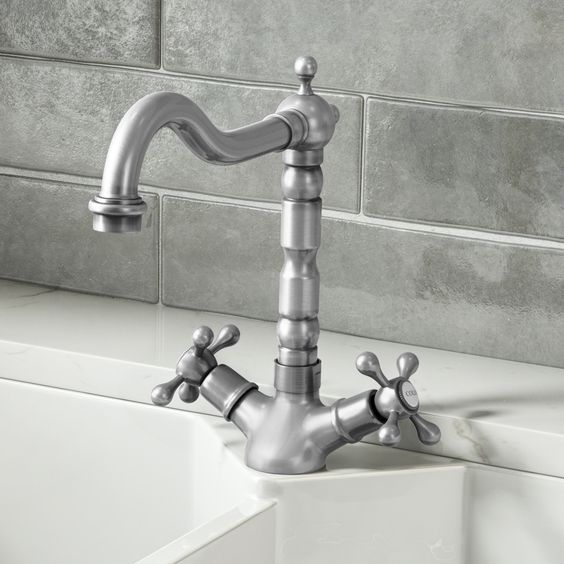Your Cart is Currently Empty: $0.00
【Why Do Pipes Freeze in Winter?】


By Megan Ray Nichols
It’s one thing that no homeowner wants to deal with, but it’s often the reality during cold winter months — frozen pipes. In addition to cutting off water to the home, these pipes can also burst, causing water damage. Why do pipes freeze in the winter, and what can you do to prevent them from getting cold enough to freeze? What should you do if the pipes burst? Here are some tips and tricks to help you get through the winter with your plumbing intact.
Why Do They Freeze?
First, why do pipes freeze?
Like most things filled with water, they freeze when the temperature drops below the freezing point of water — 32 degrees Fahrenheit or 0 degrees Celsius.
With pipes, there are two more variable to consider — movement and expansion. It’s harder for water to freeze if it’s in motion. That’s why lakes will freeze at 32 degrees, but it takes much lower temperatures to solidify rivers and waterfalls.
If a section of your pipe starts to freeze, the water expands. This behavior is an anomaly in nature because most liquids don’t grow when they solidify. Water, however, will become denser until it reaches a point just before freezing, then it will start to expand again. In a confined space like the inside of a pipe, this extra pressure doesn’t have anywhere to go, so it will cause the tube to split.
Preventing Pipes From Splitting
If you live in an area where cold temperatures happen often, what can you do to prevent your pipes from splitting once the temperature drops?
Keep your interior temperature well above freezing, especially around exposed pipes. Most pipes inside your home won’t be insulated, so if it gets too cold in the house, they could be vulnerable. This rule of thumb doesn’t usually include pipes inside the walls — the material inside your walls protects your pipes as well.
For pipes that are outside or in an unheated area, take the time to insulate them. Pipe insulation is inexpensive, easy to install and, depending on the thickness, can protect your pipes in sub-zero temperatures. If you can’t wrap the pipes for whatever reason, keep a small trickle of water running from the taps. This motion will make it more difficult for the water to freeze.
If a pipe does freeze — you can usually tell because you’ll stop getting water from the tap — shut off the main water valve to your home and use hot air to thaw the frozen point. A hairdryer, hot water or an electric space heater are ideal for this. Once you’ve melted the ice, turn the water back on and check the pipe for leaks.
What If a Pipe Breaks?
If the worst happens and one of your pipes breaks due to cold weather, don’t panic. Start by shutting off your home’s main water valve to prevent further damage. One broken pipe can pour between 4 and 8 gallons of water into your home every minute.
If there are any switches or outlets in the area around the leak, make sure you shut off the power to those sockets. If it’s near the breaker box, you’ll need to shut off the main breaker to prevent electrical shocks and damage to the rest of the home’s electrical system.
Once the power is off, you’ll need to start cleaning up the water that has leaked and emptying the rest of your home’s water system. Turn off your water heater and open the taps in your sinks and showers. Flush the toilets too. This step will prevent more water from leaking even after the water main is turned off.
The faster you can clean up the water in your home, the less damage it will be able to do. Wet rugs, upholstery and drywall are all prime breeding grounds for mold and mildew, which can be dangerous to your health.
Once you’ve got everything cleaned up as best as you can, contact your home owner’s insurance company. Many policies offer emergency assistance to help you get the pipe fixed as well as any water damage that occured.
Finally, you will need to have the busted pipe repaired. If you’re handy and have some plumbing experience, you may be able to do this on your own. If not, the best thing to do is hire a professional plumber to replace the broken length of pipe with one that won’t leak when you turn the water back on.
No one wants to think about a pipe bursting during the winter months, but it does happen. The old saying applies here — an ounce of prevention is worth a pound of cure. Insulating your pipes and keeping a trickle of water running during cold nights can save you a lot of money in the long run.
Photo Reference: Pinterest

